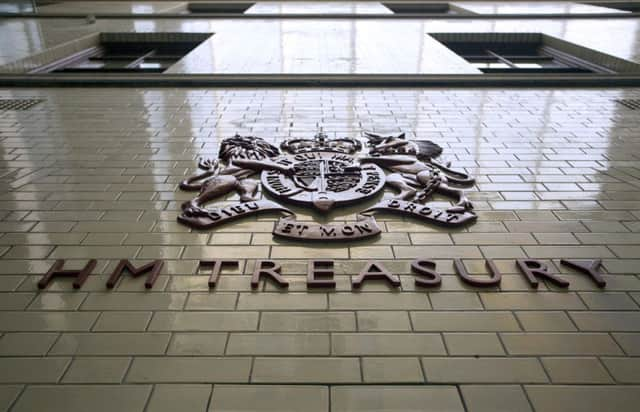Hard Brexit to cost UK up to £66bn a years says Treasury


Leaked Government papers suggest leaving the single market and switching to World Trade Organisation (WTO) rules would cause GDP to fall by up to 9.5% compared with if the country remained in the European Union.
The draft Cabinet committee paper seen by The Times is based on forecasts from the controversial study into the predicted impact of quitting the EU published by George Osborne in April during the referendum campaign.
Advertisement
Hide AdAdvertisement
Hide AdAlthough the then chancellor faced widespread criticism over the report, the Treasury stands by its calculations, according to The Times.
The documents says: “The Treasury estimates that UK GDP would be between 5.4% and 9.5% of GDP lower after 15 years if we left the EU with no successor arrangement, with a central estimate of 7.5%.”
It adds: “The net impact on public sector receipts - assuming no contributions to the EU and current receipts from the EU are replicated in full - would be a loss of between £38 billion and £66 billion per year after 15 years, driven by the smaller size of the economy.”
Brexit backers who have seen the documents told the newspaper the figures were unrealistic and claimed there was a push to “make leaving the single market look bad”.
Advertisement
Hide AdAdvertisement
Hide AdBut prominent Remain campaigners pushing for a “soft” Brexit that would keep Britain in the single market said the documents showed the “horrific damage” of leaving the trading bloc.
Conservative former minister Anna Soubry, a supporter of the Open Britain campaign, said: “The horrific damage of a hard Brexit is clear. Less tax revenue means less to invest in schools and hospitals, lower trade and investment means businesses and jobs at risk.
“This danger is precisely why Parliament must be involved in the principles to guide the Brexit negotiations.
“Britain will leave the EU, but we must do so in a way the protects our prosperity and reduces risk. The Government should now make clear the ‘WTO option’ isn’t on the table.”